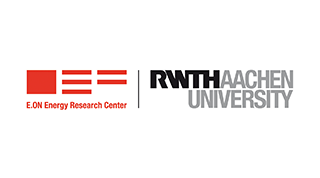Description
Country: Germany
RWTH-ACS
The Institute for Automation of Complex Power Systems (ACS) group aims to implement a multidisciplinary research approach, able to capture the most recent advances in ICT to support the solution of the most advanced problems in the area of grid dynamics and automation. ACS’s research is structured around three core areas: Grid Operations, ICT for Energy, and Control and Automation. ACS also maintains a state-of-the-art testing facility for real-time grid simulation and hardware-in-the-loop testing.
RWTH-ACS has the task lead for T2.3- Advanced tools and methodologies for component integration into DC systems. This involves coordinating efforts from multiple participants (INESC, EDF, NEW, TECN, EATDE, FRAUN, SCHND, NEXNS, W&W, ISTID) to create solutions for real-time simulation, offline simulation, hardware-in-the-loop, digital twins, and addressing key engineering considerations like stability, control, load flow, protection, and storage. Our work includes developing three specific tools to enhance DC system integration efficiency: DC microgrids simulation tool, Multiterminal- MVDC-grid control and protection integration tool and “White” EMS tool for AC/DC Hybrid Systems.
RWTH-PGS
The areas of expertise of the Institute for Power Generation and Storage Systems (PGS) include the research, development and application of power electronic energy conversion and energy storage technologies. The work of the PGS covers research areas from the detailed development of power electronic components to converter technology and converter control, as well as analysis at system level. With its strong commitment to the Research Campus FEN, PGS has contributed significantly to the implementation and demonstration of a 5kV MVDC research grid on the RWTH campus. The grid connects various DC-DC converters, serving as high-performance test benches, that were developed, built and commissioned at PGS.
Role under the Project
RWTH-ACS has the task lead for T2.3- Advanced tools and methodologies for component integration into DC systems. This involves coordinating efforts from multiple participants (INESC, EDF, NEW, TECN, EATDE, FRAUN, SCHND, NEXNS, W&W, ISTID) to create solutions for real-time simulation, offline simulation, hardware-in-the-loop, digital twins, and addressing key engineering considerations like stability, control, load flow, protection, and storage. Our work includes developing three specific tools to enhance DC system integration efficiency: DC microgrids simulation tool, Multiterminal- MVDC-grid control and protection integration tool and “White” EMS tool for AC/DC Hybrid Systems.
RWTH-PGS leads the Work-package 3 – DC Solutions: Assets, Devices and Appliances. This comprises the coordination of the efforts of the consortium partners to build and demonstrate several prototypes, for example a smart and eco-friendly cable for DC applications or the development of new control devices allowing a better integration and management of DERs in DC grids. Furthermore, new DC grid interfaces allowing a better management of DC grids and DC systems as well as innovative protection equipment and architectures for DC grids will be developed, implemented and tested within WP3.
In addition, RWTH-PGS will implement an MVDC-LVDC living-lab that will be open to the project consortium to test and verify DC equipment. Additionally, compatibility of control strategies, especially for multivendor systems, will be evaluated.





